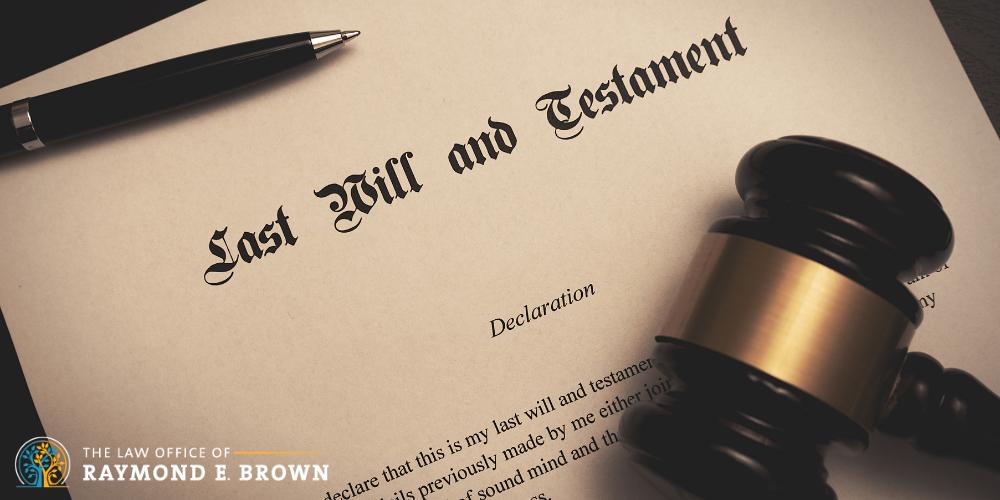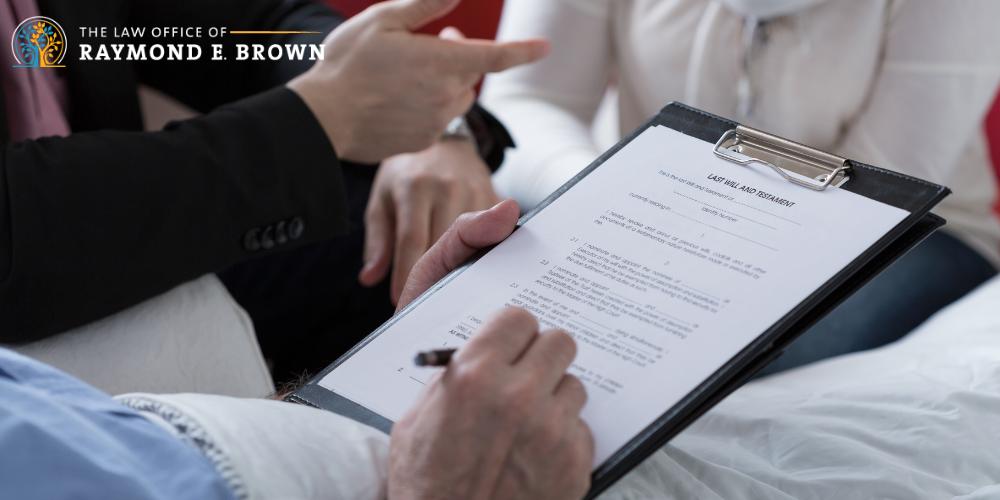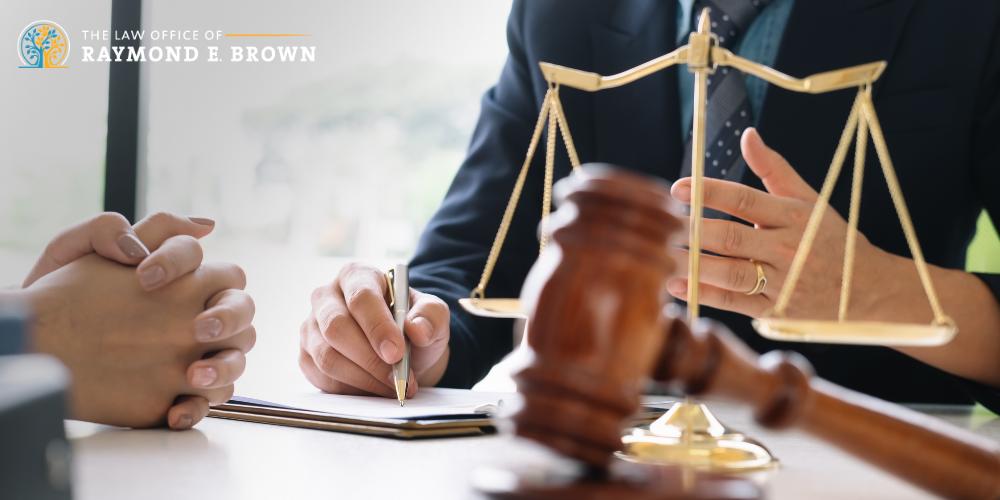Wills
Home > Practice Areas > Wills
Annapolis, Maryland Will Attorney
Experienced Will Creation Attorney Serving Anne Arundel County, Washington D.C., and Beyond
As human beings, we have the right to decide where our property will go–or rather, who it will go to–when we die. However, it is not enough to simply tell a person that you want them to take over your personal property when you pass. To ensure that your assets and possessions are distributed the way you intended, you must first create a Will.
Even for those who do not have a large or complex estate, creating a Last Will and Testament is of the utmost importance. Failure to do so means the state will determine how your property is distributed after you die, potentially leaving your family and loved ones with nothing.
If you do not yet have a Will in place, it may be in your best interest to consult with an experienced estate planning lawyer as soon as possible. Estate planning attorneys can help you prepare your will and ensure its legality while providing advice and guidance throughout the process. At The Law Office of Raymond E. Brown, we have a wealth of experience when it comes to helping clients create Wills. The attorneys at our law firm understand the intricacies of estate law and tailor our approach to the unique needs of each individual client. When you work with us, you’re entrusting your legacy to seasoned professionals who will ensure your final wishes are protected, providing you and your loved ones with peace of mind for the future.
For a free consultation with the Annapolis, MD estate planning attorneys at The Law Office of Raymond E. Brown, contact us today by calling (443) 554-9944 or filling out our online intake form.

How To Make a Will in Maryland
Creating a will is a crucial step in ensuring your assets and wishes are protected after your passing. However, navigating the complexities of wills, trusts, and estates can be daunting and overwhelming for many. That is why equipping yourself with the help of an estate planning lawyer who can provide expertise and legal advice is so beneficial. When you partner with an attorney, they can guide you through the process, ensuring your will is legally valid and accurately reflects your wishes while taking into account all relevant laws and regulations.
As Wills are very complex and important documents, making even the slightest error can be costly. By working with a lawyer that specializes in Wills and estate planning in Maryland, you also reduce the risk of these costly errors and oversights that might lead to the Will being invalid.
While you do not legally have to have a lawyer to create a Will, the peace of mind that comes with knowing your affairs are in order is an invaluable benefit of enlisting the services of an Annapolis estate planning lawyer when creating your Will in Maryland.
What are the Requirements for Wills in Maryland?
Formal requirements for Wills vary by state. In Maryland, there are a few key requirements that ensure the validity of a Will. First and foremost, Wills must be written. Some states, including Maryland, allow a Will to be in the testator’s own handwriting, but a better and more enforceable option is to use a typed or pre-printed document.
In order for a Will to be valid in Maryland, the testator must also sign his or her own Will. That is, unless he or she is unable to do so, in which case the testator must direct another person to sign the Will.
Finally, the testator must have at least two witnesses who will attest to the signature and sign the Will themselves.
Generally, the testator of the Will must also be an adult of “sound mind,” meaning that the testator must be able to understand the full meaning and importance of the document.

What To Know About Creating a Will
When you equip the help of a Maryland Will attorney, they will be able to answer any questions you may have regarding your Will, address any concerns, and handle all of the small details and legal jargon for you. However, at The Law Office of Raymond E. Brown, we understand that the process of creating and executing a Will is a very personal and important decision, and we want you to be informed so you don’t feel blindsided or unprepared.
Below, we’ll cover some important information regarding Wills in Maryland as well as some key terms you may want to be aware of.
Will Limitations
There are limitations to wills that may present certain legal restrictions preventing a testator from giving full effect to his or her wishes. For example, some laws prohibit the disinheritance of spouses or dependent children. A married person cannot completely disinherit a spouse without the spouse’s consent, usually in a pre-nuptial agreement. In most jurisdictions, a surviving spouse has a right of election, which allows the spouse to take a legally-determined percentage (up to one-half) of the estate when he or she is dissatisfied with the Will. Non-dependent children may be disinherited, but this preference should be clearly stated in the Will in order to avoid confusion and possible legal challenges.
In addition, some property may not be conveyed in the Will. Property owned in joint tenancy may only go to the surviving joint tenant. Also, pensions, bank accounts, insurance policies, and similar contracts that name a beneficiary must go to the named party.
Simple Wills
A “simple” Will means that the person is leaving their property to their spouse and then equally and outright to their children. If the person is not married, “simple” means that the person is leaving their property outright and equally to their children. Many Wills are not simple and involve unequal distributions or the creation of trusts for children or loved ones or for tax and asset protection.

Probate Property
Wills control our probate property. Probate property is the property that a person owns in their name alone and where there is no beneficiary designation. Probate property also includes property owned with others as tenants in common. In Maryland and Washington D.C., real estate, whether owned by one person or by more, will be probate property unless held in a Trust.
Non-Probate Property
The Will may not control other types of property. For instance, Individual Retirement Accounts, annuities, and life insurance are typically controlled by a beneficiary designation. If a person designates a beneficiary and the beneficiary survives, the IRA or the life insurance proceeds will go to the beneficiary named, and a Will has no control of the non-probate property. Husbands and wives frequently set up accounts as joint tenants with the right of survivorship (JTWROS). With JTWROS accounts, if one of the tenants dies, the account belongs to the surviving co-tenant. A Will has no function with JTWROS accounts or beneficiary designations, assuming the joint owner or the named beneficiary survives the person.
Appointing a Personal Representative
A Will usually identifies a personal representative to perform the specific wishes of the testator after he or she passes on. The personal representative need not be a relative, although testators typically choose a family member or close friend, as well as an alternate choice. The selected representative should be advised of his or her responsibilities before the testator dies, in order to ensure that he or she is willing to undertake these duties. The personal representative consolidates and manages the testator’s assets, collects any debts owed to the testator at death, sells property necessary to pay estate taxes or expenses, and files all the required court and tax documents for the estate.
Choosing a Guardian
Testators who have minor or dependent children may use a Will to name a guardian to care for their children if there is no surviving parent to do so. If a Will does not name a guardian, a court may appoint someone who is not necessarily the person whom the testator would have chosen. Again, a testator usually selects a family member or friend to perform this duty and often also names an alternate. Potential guardians should know they have been selected and should fully understand what may be required of them. The choice of guardian usually affects other Will provisions, as the testator may want to provide financial support to the guardian in raising surviving children.

Important Estate Planning Terms You Should Know
- Testator – A testator is the creator of the Will.
- Intestate – Intestate is when a person dies without having created a Will, thus leading to the distribution of their estate according to the state’s laws of intestacy.
- Probate – Probate is the legal process through which a deceased person’s Will is enacted. It is when their assets and estate are administered and distributed according to either their Will or applicable laws.
- Succession – Succession is another word for probate.
- Codicil – A codicil is a legal document that serves as an amendment or addition to an existing Will and allows the testator to make specific changes to their original Will without completely rewriting it.
- Attestation – Attestation is the process of witnessing the signing of a Will by the testator. It is the witnesses affirming the validity of the document’s execution, which is a crucial requirement for a Will to be considered legally binding in Maryland.
- Abatement – The term abatement refers to the reduction or decrease in the distribution of assets to beneficiaries. This occurs after the payment of debts, taxes, and other expenses and the estate’s assets are insufficient to fulfill the provisions specified in the Will.
- Ademption – Ademption refers to the situation where a specific gift or inheritance specified in the Will is no longer part of the testator’s estate at the time of their death, leading to the intended beneficiary not receiving that particular endowment.
- Per Stirpes – If a designated beneficiary passes away before the testator, the person who created the Will, then the beneficiaries share goes to their descendants or heirs.
- Per Capita – All living members at the time of the descendant’s passing receive an equal share. If a beneficiary pre-deceases the testator then their share goes back into the pot and does NOT transfer to their descendants or heirs.

Need Help Creating a Will? Call Annapolis Estate Planning Attorney Raymond E. Brown Today
When you create a Will, you want to make sure it is comprehensive, legally binding, and most importantly, fulfills your wishes. That is why it is important that you equip the services of a qualified attorney.
When it comes to finding an estate planning attorney to help create and execute your Will, experience matters. At The Law Office of Raymond E. Brown, our lawyers possess a deep knowledge and understanding of estate planning and related practice areas. We focus our practice entirely on matters involving Wills, Estates, and Trust Administration, giving our clients the security and peace of mind that comes with knowing their assets and, therefore, their families, are left in good hands.
Whether you need help with creating a Will, creating a Trust, funding a Trust, estate administration, Medicaid planning, Advance Medical Directives, Power of Attorney, or anything of the sort, reach out to the team at The Law Office of Raymond E. Brown today. You can contact us by phone at (443) 554-9944 or by completing our online intake form. We look forward to assisting you with all of your estate planning needs.

